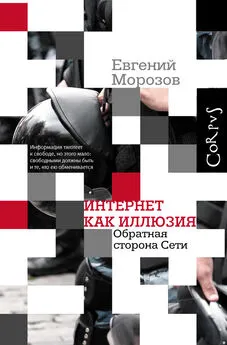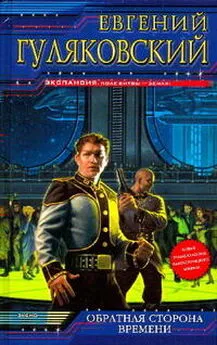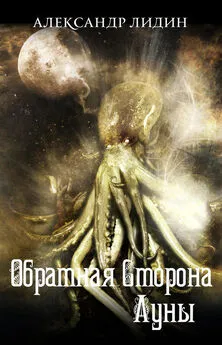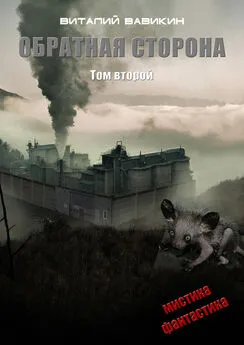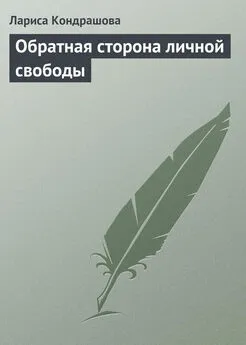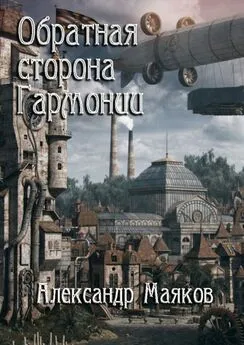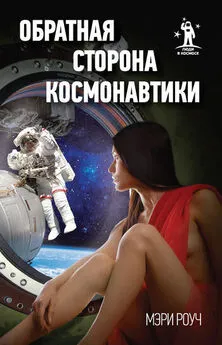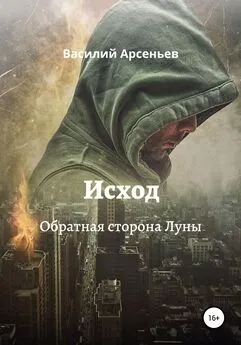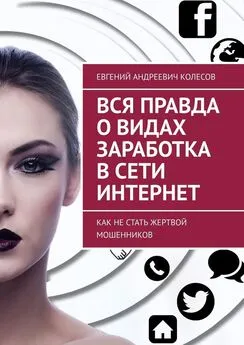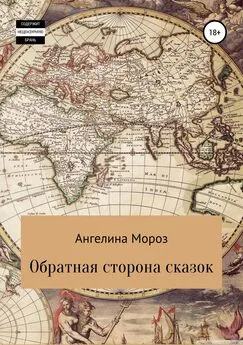Евгений Морозов - Интернет как иллюзия. Обратная сторона сети
- Название:Интернет как иллюзия. Обратная сторона сети
- Автор:
- Жанр:
- Издательство:Array Литагент «Corpus»
- Год:2014
- Город:Москва
- ISBN:978-5-17-084792-1
- Рейтинг:
- Избранное:Добавить в избранное
-
Отзывы:
-
Ваша оценка:
Евгений Морозов - Интернет как иллюзия. Обратная сторона сети краткое содержание
Интернет как иллюзия. Обратная сторона сети - читать онлайн бесплатно полную версию (весь текст целиком)
Интервал:
Закладка:
Winner, L. Autonomous Technology: Technics-Out-of-Control as a Theme in Political Thought . Cambridge, MA: MIT Press, 1978. Wired Nominates the Internet for the Nobel Peace Prize . Press release //
Internet for Peace, November 17, 2009. www.internetforpeace.org/ mediadetail.cfm?pressid=1.
Zia-Ebrahimi, R. Bombard Iran… with Broadband // Guardian, February 24, 2010.
Глава 2. С новым 1989 годом!Agenda . Conference on Cyber Dissidents: Global Successes and Chal-lenges. George W. Bush Institute, April 19, 2010.
Albrecht, H., and O. Schlumberger “Waiting for Godot”: Re-gime Change Without Democratization in the Middle East // Inter-national Political Science Review/Revue internationale de science politique 25, no. 4 (2004): 371.
Anderson, P. A Ripple of the Polonaise // London Review of Books,
November 25, 1999.
Arias-King, F. Orange People: A Brief History of Transnational Li-beration Networks in East Central Europe // Demokratizatsiya: The Journal of Post-Soviet Democratization 15, no. 1 (2007): 29–72.
Ascherson, N. The Media Did It // London Review of Books, June 21, 2007.
Ascherson, N. They’re Just Not Ready // London Review of Books January 7, 2010.
Barme, G. R., and Sang Ye. The Great Firewall of China // Wired, February 1, 1996.
Bennett, A. The Guns That Didn’t Smoke: Ideas and the Soviet Non-Use of Force in 1989 // Journal of Cold War Studies 7, no. 2 (2005): 81–109.
Bilalic, M., McLeod, P., and F. Gobet Why Good Thoughts Block Better Ones: The Mechanism of the Pernicious Einstellung (Set) Effect // Cognition 108, no. 3 (2008): 652–661.
Bildt, C. Tear Down These Walls Against Internet Freedom // Washington Post, January 25, 2010.
Bollinger, L. C. A Free Press for a Global Society // Chronicle of Higher Education, February 21, 2010.
Brooks, S. G., and W. C. Wohlforth Power, Globalization, and the End of the Cold War: Reevaluating a Landmark Case for Ideas // International Security 25, no. 3 (2001): 5–53.
Brown, C. History Ends, Worlds Collide // Review of International Studies 25 (1999): 41–57.
Brownback, Sam Twitter Against Tyrants: New Media in Authoritari-an Regimes // Commission on Security and Cooperation in Europe, October 22, 2009.
Bunce, V. J., and S. L. Wolchik Defeating Dictators: Electoral Change and Stability in Competitive Authoritarian Regimes // World Politics 62, no. 1 (2009): 43–86.
Burnell, P. From Evaluating Democracy Assistance to Appraising Democracy Promotion // Political Studies 56, no. 2 (2008): 414–434.
Campbell, J. L. Institutional Analysis and the Role of Ideas in Politi-cal Economy // Theory and Society 27, no. 3 (1998): 377–409. Carothers, T. The Backlash Against Democracy Promotion // For-eign Affairs 85, no. 2 (2006): 55–68.
Centeno, M. A. Between Rocky Democracies and Hard Markets: Di-lemmas of the Double Transition // Annual Review of Sociology 20, no. 1 (1994): 125–147.
Chen, C. Institutional Legitimacy of an Authoritarian State: China in the Mirror of Eastern Europe // Problems of Post-Communism 52, no. 4 (2003): 3–13.
Clinton, H. Remarks on Internet Freedom . The Newseum, Washington, DC, January 21, 2010.
Cohen, B. J. A Grave Case of Myopia // International Interactions 35, no. 4 (2009): 436–444.
Cohen, R. Target Iran’s Censors // International Herald Tribune, February 18, 2010.
Cox, M. Why Did We Get the End of the Cold War Wrong? // Bri-tish Journal of Politics & International Relations 11, no. 2 (2009): 161–176.
Critchlow, J. Public Diplomacy During the Cold War: The Record and
Its Implications // Journal of Cold War Studies 6, no. 1 (2004): 75–89. Critchlow, J. Western Cold War Broadcasting // Journal of Cold War Studies 1, no. 3 (1999): 168–175.
Crovitz, G. L. The Internet and Political Freedom // Wall Street Jour-nal, March 15, 2010.
Danyi, E. Xerox Project: Photocopy Machines as a Metaphor for an “Open Society” // Information Society 22, no. 2 (2006): 111–115. Ding, X. L. Institutional Amphibiousness and the Transition from
Communism: The Case of China // British Journal of Political Science (1994): 293–318.
Excerpts: Bush to Remain “Committed” to War on Terror // Washington Times, January 11, 2005.
Falk, B. J. 1989 and Post-Cold War Policymaking: Were the “Wrong” Lessons Learned from the Fall of Communism? // International Journal of Politics, Culture, and Society 22, no. 3 (2009): 291–313.
Feith, D. Senate to Hillary: Support Cyber Dissident // Wall Street Journal, July 23, 2009.
Fowler, G. A., and L. Chao L. U. S. Urged to Act on Internet Freedoms // Wall Street Journal, March 25, 2010.
Freedom vs. the Firewall; The Senate Can Help Fend Off Authoritarian Censorship // Washington Post, July 7, 2009.
Fukuyama, F. Our Posthuman Future: Consequences of the Biotech-nology Revolution . New York: Farrar, Straus and Giroux, 2002.
Fukuyama, F., and M. McFaul Should Democracy Be Promoted or Demoted? // Washington Quarterly 31, no. 1 (2008): 23–45. Garton, Ash T. 1989! // New York Review of Books, November 5, 2009. Gedmin, J. Democracy Isn’t Just a Tweet Away // USA Today, April 22, 2010.
Glassman, J. K. Statement on the Conference on Cyber Dissidents . George W. Bush Institute, April 19, 2010.
Goldstone, J. Towards a Fourth Generation of Revolutionary Theo-ry // Annual Review of Political Science 4 (2001): 139–187.
Granville, J. C. Radio Free Europe’s Impact on the Kremlin in the Hungarian Crisis of 1956 : Three Hypotheses // Canadian Journal of History 39, no. 3 (2004): 515–546.
Grodsky, B. Lessons (Not) Learned: A New Look at Bureaucratic Politics and US Foreign Policy-Making in the Post-Soviet Space // Problems of Post-Communism 56, no. 2 (2009): 43–57.
Hachten, W. The Triumph of Western News Communication // Fletcher Forum of World Affairs 17 (1993): 17.
Henderson, S. Patriotic Chinese Hackers Attack Website of Melamine Poisoned Children // Dark Visitor, January 23, 2009. www.thedark-visitor.com/2009/01/patriotic-chinese-hackers-attack-website-of-melamine-poisoned-children/.
Hokenos, P. Past Forward // Boston Review, March 2010.
Jacoby, J. Despite Forecasts, Freedom Takes More Than Technology // Boston Globe, April 25, 2010.
Jacoby, J. Medium Isn’t the Message // Boston Globe, April 28, 2010. Jervis, R. Bridges, Barriers, and Gaps: Research and Policy // Political Psychology 29, no. 4 (2008): 571–592.
Jervis, R. Understanding Beliefs // Political Psychology 27, no. 5 (2006): 641–663.
Judt, T. A Story Still to Be Told // New York Review of Books, March 23, 2006.
Kahneman, D., and G. Klein Conditions for Intuitive Expertise: A Failure to Disagree // American Psychologist 64, no. 6 (2009): 515–526.
Kalandadze, K., and M. A. Orenstein Electoral Protests and Democratization: Beyond the Color Revolutions // Comparative Political Studies 42, no. 11 (2009): 1403.
Kaldor, M. H. The Ideas of 1989 : The Origins of the Concept of Glo-bal Civil Society // Transnational Law & Contemporary Prob-lems 9 (1999): 475.
Kaminski, M. M. How Communism Could Have Been Saved: For-mal Analysis of Electoral Bargaining in Poland in 1989 // Public Choice 98, no. 1 (1999): 83–109.
Kegley, C. W., Jr. How Did the Cold War Die? Principles for an Au-topsy // Mershon International Studies Review 38, no. 1 (1994): 11–41.
Kopstein, J. 1989 as a Lens for the Communist Past and Post-Communist Future // Contemporary European History 18, no. 3 (2009): 289–302.
Kopstein, J. The Transatlantic Divide over Democracy Promotion // Washington Quarterly 29, no. 2 (2006): 85–98.
Kotkin, S., and J. T. Gross Uncivil Society: 1989 and the Implosion of the Communist Establishment . New York: Modern Library, 2009.
Kramer, M. The Collapse of East European Communism and the Re-percussions Within the Soviet Union (Part 1 ) // Journal of Cold War Studies 5, no. 4 (Fall 2003): 178–256.
Kramer, M. The Collapse of East European Communism and the Re-percussions Within the Soviet Union (Part 3 ) // Journal of Cold War Studies 7, no. 1 (Winter 2005): 3–96.
Kramer, M. Special Issue: The Collapse of the Soviet Union (Part 2 ):
Introduction // Journal of Cold War Studies 5, no. 4 (Fall 2003): 3–42. Kuran, T. Now Out of Never: The Element of Surprise in the East
European Revolution of 1989 // World Politics: A Quarterly Jour-nal of International Relations 44, no. 1 (1991): 7–48.
Kurki, M. Critical Realism and Causal Analysis in International Re-lations // Millennium: Journal of International Studies 35, no. 2 (2007): 361.
Lake, D. A., Powell, R., Choice, S., et al. Adapting Inter-national Relations Theory to the End of the Cold War // Journal of Cold War Studies 5, no. 3 (2003): 96–101.
Lake, Eli Hacking the Regime // New Republic 240, no. 16 (2009). Lakoff, G., and M. Johnson Metaphors We Live By . Chicago:
University of Chicago Press, 1980.
Lane, D. “Coloured Revolution” as a Political Phenomenon // Journal of
Communist Studies and Transition Politics 25, no. 2 (2009): 113–135. Lawson, G. Historical Sociology in International Relations: Open So-ciety, Research Programme and Vocation // International Politics 44, no. 4 (2007): 343–368.
Leedom-Ackerman, J. The Intensifying Battle over Internet Free-dom // Christian Science Monitor, February 24, 2009.
Levy, J. S. Learning and Foreign Policy: Sweeping a Conceptual Mine-field // International Organization 48, no. 2 (1994): 279–312.
Lohmann, S. Collective Action Cascades: An Informational Rationale for the Power in Numbers // Journal of Economic Surveys 14, no. 5 (2000): 655–684.
Lohmann, S. The Dynamics of Informational Cascades: The Monday Demonstrations in Leipzig, East Germany, 1989—91 // World Poli-tics 47, no. 1 (1994): 42–101.
Mahoney, J., Kimball, E., and K. L. Koivu The Logic of His-torical Explanation in the Social Sciences // Comparative Political Studies 42, no. 1 (2009): 114.
Mahoney, J., and R. Snyder Rethinking Agency and Structure in the Study of Regime Change // Studies in Comparative International Development 34, no. 2 (1999): 3–32.
McConnell, M. Mike McConnell on How to Win the Cyber-War We’re Losing // Washington Post, February 28, 2010.
McFaul, M. The Fourth Wave of Democracy and Dictatorship: Non-cooperative Transitions in the Postcommunist World // World Poli-tics 54, no. 2 (2002): 212–244.
Moe, H. Everyone a Pamphleteer? Reconsidering Comparisons of Me-diated Public Participation in the Print Age and the Digital Era // Media, Culture & Society 32, no. 4 (2010): 691.
Nairn, T. Where’s the Omelette? // London Review of Books, No-vember 23, 2008.
Nelson, M. War of the Black Heavens: The Battles of Western Broad-casting in the Cold War . Syracuse, NY: Syracuse University Press, 1997.
Osgood, K. A. Hearts and Minds: The Unconventional Cold War // Journal of Cold War Studies 4, no. 2 (2002): 85–107.
Читать дальшеИнтервал:
Закладка:
